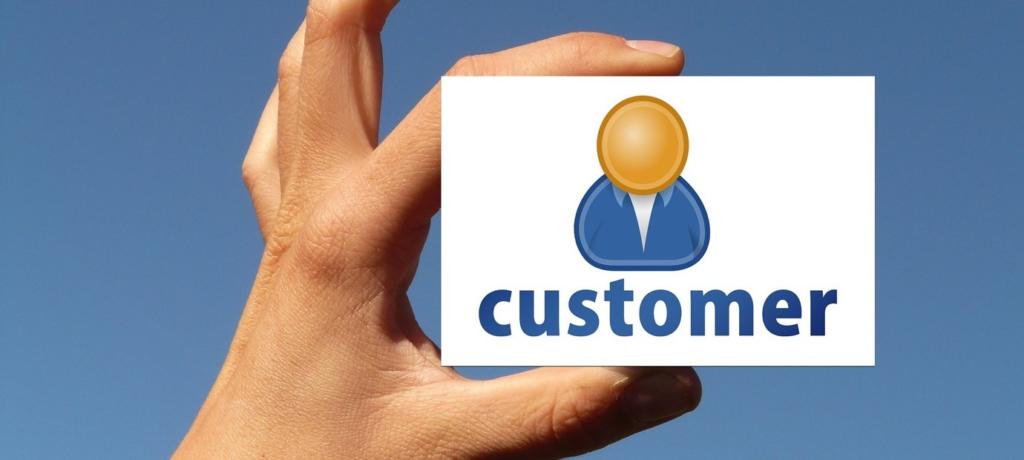AsiaTechDaily – Asia's Leading Tech and Startup Media Platform

Absolute Customer Satisfaction- The Biggest Success Story Of Any Startup
Whether a startup is into unknown territory, or within its comfort zone, a business always has one primary goal, and that is profit generation. The success or failure of a business comes down to whether it is profitable or not. In laymen’s terms, “It’s all about the money.”
One of the ways to earn more is to sell more. The more you sell, the more you gain. Therefore, customers are the priority of every business.
Target Audience And Customer Base
When a startup launches a new product or service, it tends to be aimed at a demographic who are most likely to buy or use the product or service respectively. This demographic differs from product to product and is called the target audience. When a product is first released in the market, the startup should do everything to make sure it reaches as much percentage of this target audience as possible.
Once a product is established and selling, upgrades may be necessary. You can very well relate to these upgrades, re-releases, and newer, improved versions of the products like mobile phones, cars, and so on. These products are designed to appeal to the existing customers who use the older version of these products. Improvements are made by the adoption of the latest technical advancements, and also from the feedback of the loyal customer base.

Customer Feedback
Customer feedback is the comments, reviews, and suggestions that a startup receives from its customers in response to its offerings. Overall good customer feedback implies that the product or service is liked and accepted by the customers. In other words, it has a market for itself.
Feedbacks can be positive or negative, but most feedbacks are good for startups in one way or the other. Positive feedback helps to boost the popularity of the product, whereas negative feedback with constructive criticism helps the startups to improve their offerings in order to make them more acceptable.
Customer Satisfaction
This is the ultimate scale with which the quality of a product or service is measured. Customer satisfaction is defined as the number or percentage of total customers whose documented experience with a startup, or a product or service of a startup is above the standard satisfactory expectations.
Customer satisfaction is the primary indicator of how well your product or service is doing in the market. An excellent product will be reciprocated with good feedback and a high level of customer satisfaction.

Absolute customer satisfaction is rare and is the pinnacle of achievement for a startup.
Satisfaction And Feedback
The more satisfied a customer, the better is his feedback. Positive feedback is good for the image of a startup. When a product or service receives many positive feedbacks, they become more popular and attract new customers.
This popularity is due to the existing customers sharing their good experiences with their family, friends, or colleagues and is a good PR. Startups should market these testimonials to establish that their product is reliable. It helps them increase sales. So, customer satisfaction brings in more revenue and mostly more profit.
Achieving Absolute Customer Satisfaction
This is an ideal scenario. Even a product targeted at a very narrow demographic will not be able to satisfy all its target audience as there will always be individual differences which they cannot consider during mass production. This causes different amounts of satisfaction in different customers, resulting in some being below the expectations of the customer.
However, there are some general steps that you can take to ensure that the maximum number of customers are satisfied with your product or service.

Customer Service Policy
Customer satisfaction depends not only on the product you sell but also on the post-sale services you offer. It is necessary to have a customer service policy laid out, and also adhere to the policy. The policy should be customer-friendly and refreshed often to include any new clause that may be necessary for better consumer experience.
Knowing Your Audience
It is important to know your target audience. People will not buy something if it is not useful for them or does not cater to their needs. When you release a product, try to understand and estimate the number of people who will find your offering useful and buy it.
This will also help you anticipate any new features that should be added to cater to a possible future requirement. This is what truly makes a product innovative and sellable.
Communication
It is necessary that you keep in touch with your customer base. This can be for seeking opinions and suggestions, notifying them about change in policies, new rules and services, dealing with their complaints, and engaging potential new customers. There are many ways to keep in touch with them.

One On One Sessions
The most effective form of communication is face to face. One on one sessions with customers, when conducting deals, listening to complaints or even during the follow-up service, is more effective than a hundred emails sent. This can initially be slightly scary, but it gets better with time and experience. It is also rewarding, as you tend to get the feedback and opinions directly, and also gain insight into the product from their perspective. Off course this is only possible during the initial days when startups are still trying to create a customer base.
Electronic Contacts and Newsletters
This is perhaps the most widely used medium of communication. This includes helplines, e-mails, newsletters, and even social media. It is effective in the sense that it helps you to get in touch with the entirety of your customer base simultaneously. Social media especially helps you to analyZe your popularity and also get quick customer feedback.

It is also faster, almost instantaneous and comes with no constraints due to distance or time. The digital form of communication is also easier for long-distance communication, as a person can contact the head office of a company located in another country without any hassles.
Attitude
This is important for anyone who wants to keep their clients happy. Always be friendly and approachable to customers, and open to suggestions. Stay professional, but also chill. Keeping your attitude balanced is the key to building a good relationship with your customers.
Punctuality and Trust
Always respond to the request of customers on time. Unnecessary delays and breaking promises creates a bad impression. Therefore, keeping your word is important for a businessperson to succeed.
The Verdict
Customer Satisfaction is the key to being successful. The Customer may not always be right, but it is your duty to keep them happy. Absolute Customer Satisfaction can be impossibly difficult to achieve but is not a myth. With the right mindset and knowledge, you can keep everyone happy, including yourself.





